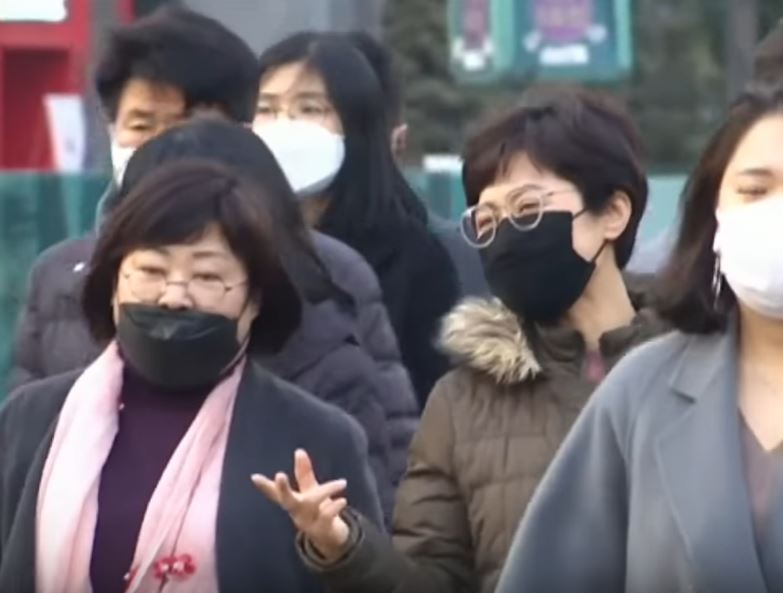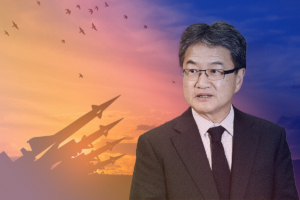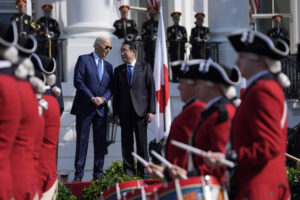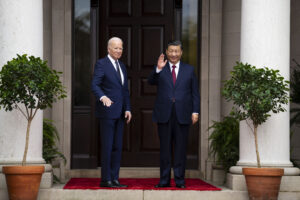Virus Cases Balloon in S. Korea as Outbreak Shifts, Spreads
Globally, over 76,000 people have been infected in 27 countries, and more than 2,200 have died. YouTube screenshot
YouTube screenshot
SEOUL, South Korea — Schools were shuttered, churches told worshipers to stay away and some mass gatherings were banned as cases of a new virus swelled Friday in South Korea, the newest front in a widening global outbreak.
The country said two people have died and 204 have been infected with the virus, quadruple the number of cases it had two days earlier, as a crisis centered in China has begun strongly reverberating elsewhere.
The multiplying caseload in South Korea showed the ease with which the illness can spread. Though initial infections were linked to China, new ones have not involved international travel.
The World Health Organization warned that such clusters not directly linked to travel from China suggest that time may be running out to contain the outbreak.
“The window of opportunity is still there. But our window of opportunity is narrowing,” saidWHO Director-General Tedros Adhanom Ghebreyesus. “We need to act quickly before it closes completely.”
Tedros singled out Iran’s discovery of 18 cases and four deaths in two days — and that a traveler from Iran carried the virus to Lebanon, and another traveler from Iran to Canada.
“These dots are very concerning — take them as dots or trends,” he said.
South Korea Prime Minister Chung Se-kyun started a government meeting on the health emergency by saying, “We have entered an emergency phase.”
“Our efforts until now had been focused on blocking the illness from entering the country,” he said. “But we will now shift the focus on preventing the illness from spreading further in local communities.”
Daegu, a southeastern city of 2.5 million that is the country’s fourth largest, emerged as the focus of government efforts to contain the disease known as COVID-19, and Chung promised support to ease a shortage in hospital beds, medical personnel and equipment. Mayor Kwon Young-jin of Daegu has urged residents to stay inside, even wearing masks at home, to stem further infection.
The first case in Daegu was reported on Tuesday. By Friday, the city and its surrounding areas had 152, including South Korea’s first two fatalities from COVID-19.
Nationwide, the numbers told of a ballooning problem. There were 20 new cases reported Wednesday, 53 on Thursday and 100 on Friday.
The central government declared a “special management zone” around Daegu on Friday, which didn’t restrict movement of residents or supersede local officials’ power but served as official recognition of the problem.
Most of those cases have been linked to a single house of worship, a branch of the Shincheonji Church of Jesus, where a woman in her 60s attended two services before testing positive for the virus.
About 1,000 others who attended services with the woman have been isolated in their homes for screening, and health authorities say they’re trying to monitor thousands of other church members.
All 74 sites operated by the Shincheonji Church have been closed and worshipers have been told to instead watch services online for a sect whose leader claims to be an angel of Christ, but who is dismissed by many outsiders as a cult leader. Its teachings revolve largely around the Book of Revelation, a chapter of the New Testament known mostly for its apocalyptic foreshadowing.
Health and city officials say the woman eyed as a potential transmitter at the church had contact with some 1,160 people, both at the church and at a restaurant and a hospital where she was treated for injuries from a car accident. That raised fears that South Korea — which before Wednesday had recorded just 31 cases of the virus — should brace for a further surge.
“I hope South Korea will do everything to contain this outbreak at this early stage,” Tedros said.
Usually bustling downtown streets of Daegu were nearly deserted Friday as people wearing face masks lined up at clinics seeking testing. Crowds formed in supermarkets where shelves of ramen and curry were nearly bare. Eight hundred area schools, due to start a new academic year on March 2, delayed their openings by a week.
“Panic is taking hold,” said Daegu resident Huh Mi-yeon. “People are scared of any situation where they would run into another person.”
Elsewhere in the country, angst grew too. In the capital of Seoul, major downtown rallies were banned, and fears of the virus led many to avoid shops and restaurants and instead eat at home and order necessities online. Buses and subways were full of mask-clad commuters.
The first three cases in the country’s 600,000-member military also sprung up on separate bases Friday, bringing added concern. A sailor on Jeju Island and an army officer in North Chungcheong province both tested positive. Both had made recent visits to Daegu, officials said. A third infection was reported in an air force officer who is based in Daegu but who had recently traveled to military headquarters in central South Korea, the defense ministry said, prompting the quarantine of 80 soldiers there.
WHO’s Dr. Sylvie Briand said there’s no information yet that the virus itself is changing. But she’s concerned that there are different patterns of transmission in different parts of the world, what she called “a very different phase of this outbreak depending where you look.”
Globally, more than 76,000 people have been infected in 27 countries, and more than 2,200 have died. Even as new alarms were sounded elsewhere in Asia, in China, where the vast majority of cases have occurred, officials have expressed optimism over the number of new infections, which has been trending downward. China said Friday 889 new cases were recorded in the preceding 24 hours and 118 additional deaths.
___
Sedensky reported from Bangkok. Associated Press writer Tong-hyung Kim contributed to this report.
Your support matters…Independent journalism is under threat and overshadowed by heavily funded mainstream media.
You can help level the playing field. Become a member.
Your tax-deductible contribution keeps us digging beneath the headlines to give you thought-provoking, investigative reporting and analysis that unearths what's really happening- without compromise.
Give today to support our courageous, independent journalists.






You need to be a supporter to comment.
There are currently no responses to this article.
Be the first to respond.